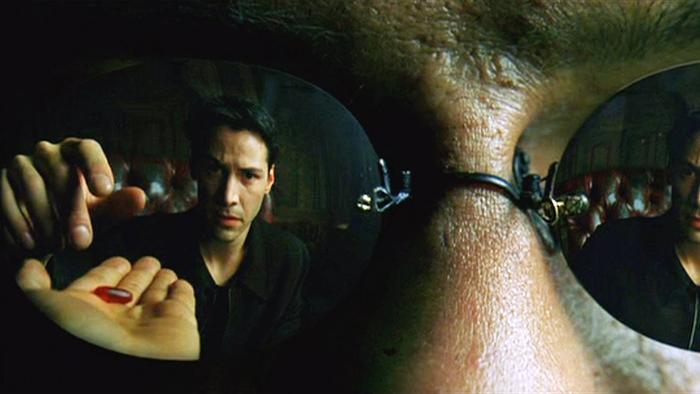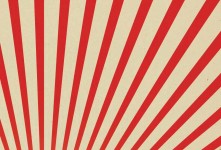We Can’t Believe, We Must Believe

We Can’t Believe, We Must Believe
Please join us for a panel discussion on the themes of faith and politics with guests Stephen Duncombe, Zack Exley, Savitri Durkee, and Simon Critchley.
We Can’t Believe, We Must Believe*
Monday, March 3, 7:30pm, free
The Change You Want To See Gallery
http://www.thechangeyouwanttosee.org
84 Havemeyer St, at Metropolitan Ave
Brooklyn, NY 11211
It has been said that the contemporary age is one of irony, where Truth and the meta-narrative have been shot through with holes. The collateral damage could be characterized as a crisis of meaning – one that is filled by the rise of fundamentalism and the creed of consumerism. We see the polarization of our population – the red state, blue state divide is decreed by pundits and pollsters to be more accurately a divide between those who believe and those who do not.
Where the Right makes universal claims, the Left takes a critical position, aiming to reveal an irrational or intolerant opponent. Faith, advertising and political spectacle are treated as mythologies to dismantle. While the dogma of fundamentalism and the Right’s fictionalizing are legitimately problematic, the implications of this reactionary focus are as well…
What are the casualties of the Left’s critiques? Is there a redemptive value to fundamentalism? Is there a way beyond this deadlock that addresses the pitfalls of dogma and those of distanced irony? What could a religion for disbelievers look like, and why could this be important?
The Change You Want To See Gallery hosts a panel discussion exploring these themes with guests:
Stephen Duncombe (http://www.nyu.edu/classes/duncombe/)
Stephen Duncombe’s interests lie in media and cultural studies. He teaches and writes on the history of the mass media and consumer society and the intersection of culture and politics. He is the author of Notes from Underground: Zines and the Politics of Alternative Culture and Dream: Re-Imagining Progressive Politics in an Age of Fantasy, the editor of the Cultural Resistance Reader, and coauthor of The Bobbed Haired Bandit: A True Story of Crime and Celebrity in 1920s New York. He also writes widely on culture and politics for a number of publications. Duncombe has appeared regularly on public radio, performed as a DJ on pirate radio, and been a lifelong political activist. He is currently working on a book about democracy and display in Victorian England.
Savitri Durkee (http://www.revbilly.com)
Savitri Durkee was born in New Mexico. She directs the radical performance community known as The Church of Stop Shopping and lives in Brooklyn.
The Church of Stop Shopping is an activist performance group based in New York City, led by Reverend Billy (stage name Bill Talen). Using the form of a revival meeting, on sidewalks and in chain stores, Reverend Billy and the gospel choir exhort consumers to abandon the products of large corporations and mass media; the group also preaches a broader message of economic justice, environmental protection, and anti-militarism, protesting sweatshops and the Iraq War. While it continues its street theater activities, the Church has also appeared on stage, has toured internationally, and most recently was the subject of a feature length film by Morgan Spurlock called “What Would Jesus Buy”. (–From Wikipedia.)
Zack Exley (http://revolutioninjesusland.com)
Zack Exley is a founder and president of the New Organizing Institute, and also works as a consultant to organizations, businesses and leaders. He directed the online campaign for the British Labor Party’s 2005 re-election, and was Director of Online Organizing and Communications at Kerry-Edwards 2004. Before that, he served as Organizing Director at MoveOn.org, and was an adviser to the early Dean campaign. Zack spent the 90’s working as a union organizer. He blogs at the HuffingtonPost and ZackExley.com. In September 2007 he launched RevolutionInJesusland.com, where he blogs from the road, scouting “the fourth Great Awakening”. This evangelical “revolution” is the fastest growing and most surprising of American social movements today. From mega churches to tiny country churches, evangelical Christians are rediscovering the “gospel of the God of the oppressed.”
Simon Critchley (http://en.wikipedia.org/wiki/Simon_Critchley)
Simon Critchley is a Professor of Philosophy at the New School in New York City. His fields of study include continental philosophy; phenomenology; philosophy and literature; psychoanalysis; the ethical and the political. He has authored a number of books, including Infinitely Demanding: Ethics of Commitment, Politics of Resistance (2007), Things Merely Are: Philosophy in the Poetry of Wallace Stevens (2005); On Humor (2002); Continental Philosophy: A Very Short Introduction (2001); Ethics-Politics-Subjectivity: Essays on Derrida, Levinas, and Contemporary French Thought (1999); Very Little, Almost Nothing: Death, Philosophy, Literature (1997); The Ethics of Deconstruction: Derrida and Levinas (1992). His recent essay, “Confraternity of the Faithless: Wilde’s Christianity” was published in Lacanian Ink.
*The title for this panel is borrowed from a forthcoming essay by Andrew Boyd and Stephen Duncombe.
Date
March 27, 2007



